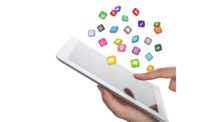5 ways the Internet of Things will revolutionize the CPG sector

The Internet of Things (IoT) is poised to revolutionize the way businesses operate across all industries. In fact, many of today’s cold food processors have already adopted the IoT to streamline operations and improve product tracking. But, it’s fair to say we’ve only begun to scratch the surface of how the IoT can be applied to enable companies to increase efficiency and continuously innovate.
In today’s highly competitive global business climate, virtually every company is looking for an edge to expand marketplaces, grow revenue and satisfy consumer demand. The IoT is tailor-made for this environment, as it can help processors work with analytics platforms to dynamically generate, analyze and communicate data.
In the near future, the IoT will revolutionize the methods consumer packaged goods (CPG) companies use to target, engage and interact with consumers during daily operations. With an influx of connected devices, the IoT will enable CPG companies to harmonize an ever-increasing quantum of data affecting each stage of operations, from product planning to marketing and production. Here are five ways the IoT is or soon will change CPG operations:
1. Monitoring transportation conditions for perishable goods. CPG goods are often perishable and temperature sensitive, so to avoid losses, companies have to transport their products at the right temperature until it reaches retail outlets. To do this effectively, companies are using sensors to guarantee that their products are handled properly, measuring a host of variables, from temperature and humidity to vibrations and altitude.
2. Using “smart shelves” to automate ordering and identify consumer demographics. Empty shelves drive consumers to competitive alternatives and can leave consumers with the impression that the remaining merchandise is picked over. IoT-powered “smart shelves” equipped with sensors can trigger re-ordering or re-stocking when items run out. Smart shelves can also be equipped with facial recognition technology to gather demographics like consumer gender and estimated age.
3. Ensuring correct store placement. Shelf placement is the primary way CPG companies increase brand visibility. With inexpensive sensors attached to in-store displays, CPG businesses can use geolocation sensing to ensure correct product placement in a store without requiring distributors to send a representative to check in person. Sensors can also be used to collect data on how products move based on location and other factors—ultimately helping companies find the best placement for their products.
4. Identifying changing shopping patterns and consumer insights. Location-aware targeting, a relatively new solution, can help CPG companies refine customer targeting within the store. IoT-powered location targeting can also signal when customers stop going to a particular store and start going elsewhere. In-store sensors can track traffic and shopping patterns to provide unprecedented insights into consumer behavior, providing data that can inspire new ways to target and interact with customers, improve brand engagement and increase sales.
5. Tracking products through complex supply chains. IoT technologies such as RFID can help CPG companies more effectively track products and trace routes throughout the extended global supply chain. IoT-connected sensors can also be programmed to send alerts when there are discrepancies between routes and product shipping specifications.
The Internet of Things is already transforming the way companies handle logistics, product placement and tracking. With IoT-powered sensors giving CPG companies new insights into how customers interact with products and fresh options for product placement and customer promotions, the IoT provides unprecedented opportunities to build long-term customer relationships.
Looking for a reprint of this article?
From high-res PDFs to custom plaques, order your copy today!








